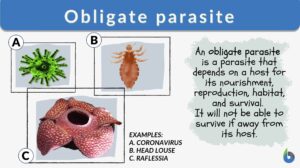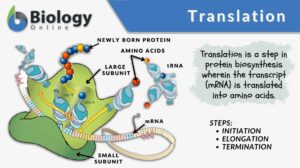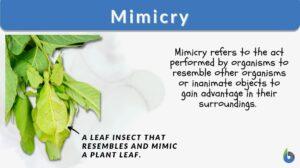Search Results for: evade
Antigenic variation
Definition noun, plural: antigenic variations (immunology) The changing of surface proteins by an infectious agent to evade... Read More
Obligate parasite
Parasitism is a form of symbiosis that occurs between a parasite and its host. The parasite is the organism that generally... Read More
Physiological adaptation
If we look over evolutionary history, we find that it’s neither the most genius and intelligent nor the strongest and the... Read More
Muscles of the Apes – a thwack on human muscle evolution
Summary: A recent finding suggests that apes do have the muscles for bipedalism, vocal communication, and facial... Read More
Translation
Translation, in general, is the conversion of something into another form, such as a word from one language to another. But... Read More
Binomial nomenclature
Binomial Nomenclature Definition Binomial nomenclature is a binomial system of naming a species. A binomial name is... Read More
Autocrine signaling
Autocrine Signaling Definition What is autocrine signaling? Autocrine signaling is a type of cell signaling wherein a cell... Read More
Parasitism
Organisms depend on different sources of food to survive. Larger organisms like plants make their own food (autotrophs) and... Read More
Pathogenicity
Definition noun, plural: pathogenicities The capability (of a pathogenic agent) to cause disease Supplement Pathogenicity... Read More
Carbohydrate
Carbohydrate Definition A biomolecule refers to any molecule that is produced by living organisms. As such, most of them... Read More
Phagocytosis
Phagocytosis Definition Phagocytosis is a basic physiological cellular process wherein a cell ingests a solid particle... Read More
Susceptible
Resistance, vulnerability, sensitivity, tolerance, and susceptibility are some highly important terminologies across the... Read More
Eubacteria
Eubacteria are prokaryotic microorganisms consisting of a single cell lacking a nucleus and containing DNA is a single... Read More
Thanatosis – Faking Death To Escape Doom
Thanatosis -- pretending to be dead -- is one of the best strategies that certain wild animals came up with in order to... Read More
Disruptive Selection
An evolutionary process known as disruptive selection (or disruptive natural selection) causes a population to become... Read More




















